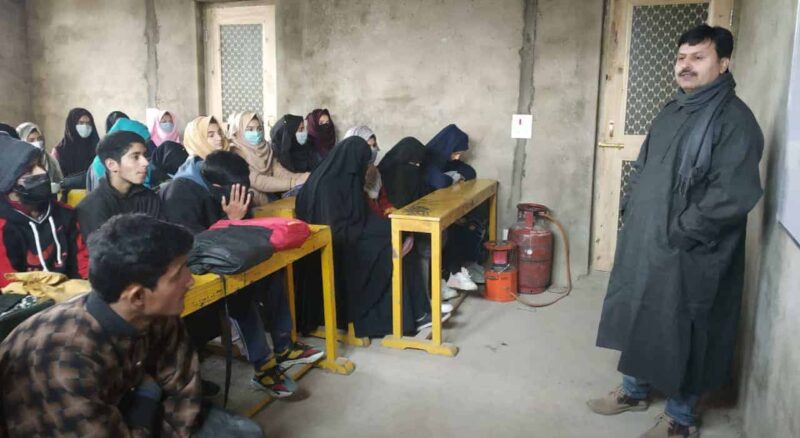Journalist and FactShala trainer Riyaz Wani writes about a bank manager who spreads the word about dis- and misinformation after attending a fact-checking training. Factshala is a news and information literacy program launched by Internews in India with the support of Google.org and the Google News Initiative, in collaboration with DataLEADS.
By Riyaz Wani
Mohammad Afzal Wani is a manager at a bank in North Kashmir, India. He became very aware of the problem of disinformation in his community after being misled into believing things that he later found out were fake. He asked me to hold a workshop on fact-checking at a school in a village on the outskirts of nearby Baramulla, where he believed that residents were uninformed about the way social media operates.
As well as helping me organize the workshop, Wani sat among the students to listen to the lecture.
“Today I learnt the difference between misinformation and disinformation for the first time,” Wani told me after the lecture.
“The lecture has been an eye-opener for me. I have come to understand a bit about how social media operates. I can no longer be a passive consumer of information.”
The lessons he learned prompted Wani to not only become more responsible in how he consumes news, but to spread the word about the issue to banker colleagues, friends and acquaintances.
To pique the interest of his colleagues at the bank in the topic of fake news, Wani’s opening line was: “Tell me the difference between misinformation and disinformation.”
None of his colleagues knew the correct answer; most thought the words were interchangeable and, when Wani explained to them the difference – that disinformation is intentionally misleading, while misinformation may be unintentionally shared – they were surprised.
“We now often discuss truthfulness or otherwise of videos and messages on social media and in WhatsApp forwards,” says Wani, adding that he encouraged his colleagues to create awareness about misinformation among their family members and friends. “As a result of my effort I might have directly made fourteen families, including mine, information-literate!”
Wani also has made it a point to make online dis- and misinformation a point of discussion among his relatives and friends. He educated his cousin Nisar Ahmad Shah, an Imam at a mosque in Kashmir’s summer capital Srinagar. Shah later talked about the issue during religious gatherings. Wani plans to also connect with the Imam of the mosque of his own locality for the purpose.
”An Imam delivers sermons to hundreds of people during Friday congregations. This is one of the easiest ways to reach a large group of people,” says Wani. “In fact, I would suggest sensitizing religious leaders of various faiths about fake news. This will really help.”
What motivates Wani to do this? ”In this day and age, unless and until you are information literate, you can’t make informed social and political choices,” he says. ”There’s so much propaganda and fake news floating around. A person who can’t make up his own mind about this will have it shaped by others.”
